
Speed climber Steck breaks Annapurna record
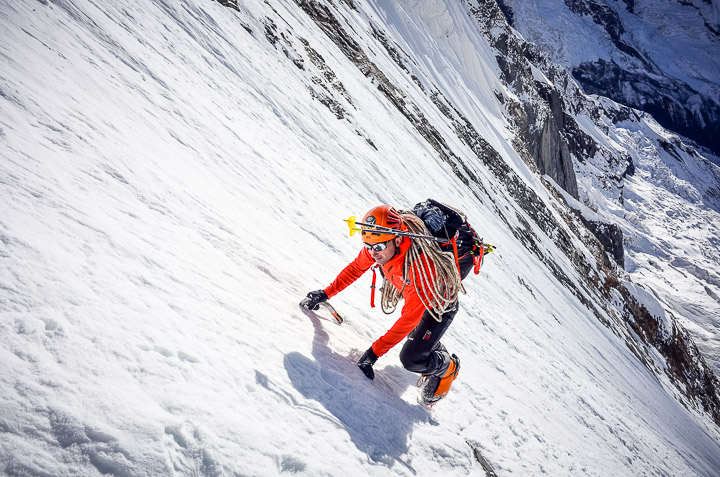
Switzerland’s Ueli Steck talks to swissinfo.ch after his record-breaking solo climb of Annapurna 1, one of the Himalaya´s most dangerous 8,000-metre peaks. The "Swiss Machine" accomplished the feat in 28 hours on October 9.
The climb is already being hailed as one of the greatest achievements in modern Himalayan history. “Ueli Steck is an amazing climber and it’s no surprise that he managed to become the first person to solo the south face of Annapurna 1 in an unprecedented time of 28 hours,” said the Himalayan chronicler, Elizabeth Hawley.
Upon his return to Kathmandu, swissinfo.ch’s Billi Bierling caught up with an incredibly fresh-looking Steck to find out whether it had actually sunk in what he had done up there.
swissinfo.ch: Are you actually aware of what you have achieved?
Ueli Steck: I feel a little bit more relaxed now, five days after the summit, however I’m still tense. When you spend 28 hours up there, being completely tense and focused, it takes some time to realise what happened. Completely focusing for 28 hours takes a lot out of you, and I am pretty sure that my body will collapse in the next couple of days.
swissinfo.ch: When you set out to climb this face, were you aware that you would actually be writing Himalayan history if you were successful?
U.S.: This was not really important to me. It was more of a personal thing. I had tried the face twice before, and it had always been my dream to climb a new technical route on an 8,000m-peak. This was the highest dream I ever had in my life. Twice, I was unsuccessful and then there was the brawl on Everest this spring, which really broke my heart. I had a hard time, but on the other hand I was so hungry to climb something, and this made me incredibly focused on my goal.
swissinfo.ch: Had this personal challenge to achieve something in the Himalaya become stronger after what happened in spring this year?
U.S.: This Everest story was really bad for me. I don’t want to be in the media with such a bad story. I knew that I had to go back to climb in order to heal. It was a very good chance, and this time I was lucky.
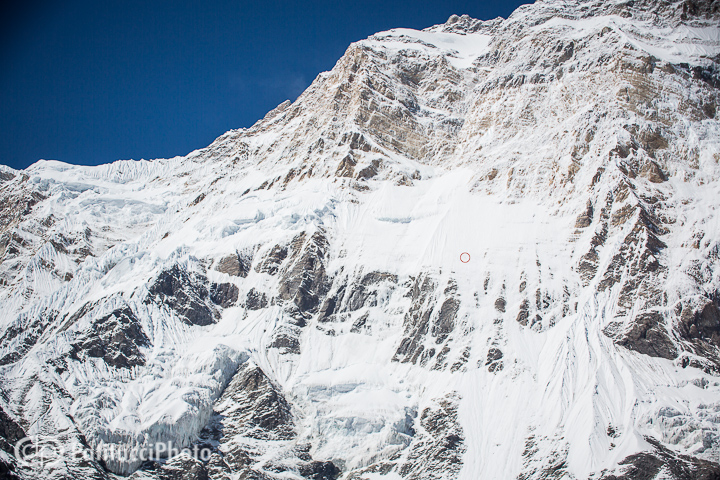
swissinfo.ch: You had initially planned to climb together with Canadian Don Bowie. How did you feel when Don decided not to join you on the summit attempt and that you had to go on your own?
U.S.: His decision did not happen on the spur of the moment. When we came back from the face, where we had slept at 6,100m, he already had some doubts about the dangers and his technical abilities. So, it was not really a surprise when he told me to go on my own.
swissinfo.ch: You then ended up having to climb alone into the unknown. How did that feel?
U.S.: This is normal when you do a first ascent. You never know what’s going to happen. You just climb without thinking what’s going to be on the summit. If you looked at the whole picture from the start, you would never climb – this would be too much. You have to take it step by step. As long as I know that I can still descend, I am fine.
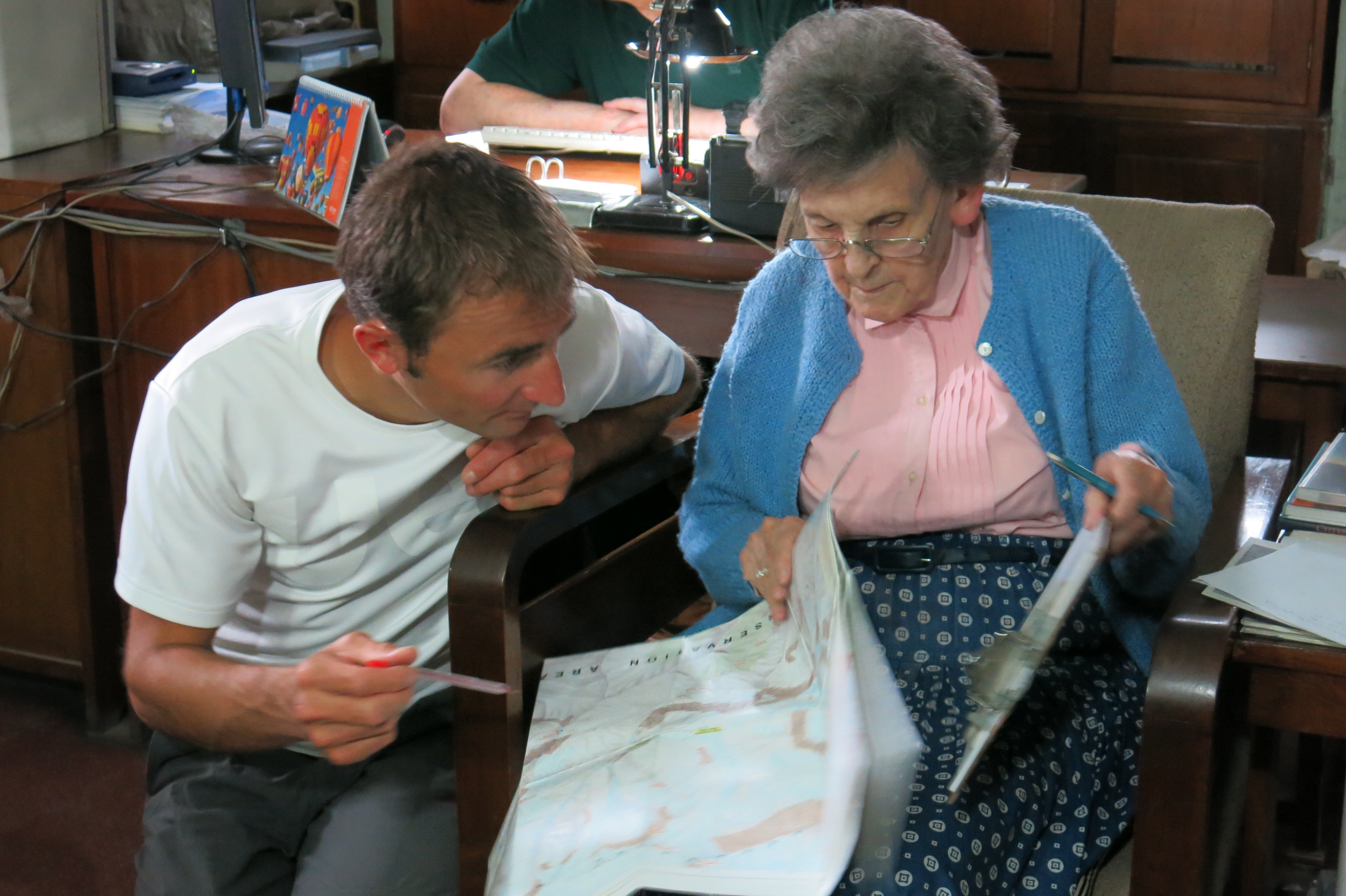
swissinfo.ch: It is a 2.5km-high-wall and one wrong step would mean certain death. Were you ever scared?
U.S.: If I had been scared, I would have gone down. That is the key point. There was never a single moment when I was worried that I could fall off. It was constant and controlled climbing but I also knew that one single mistake would mean death, which creates a lot of pressure in your head. But if you can use this pressure positively, it makes you really strong.
A forrmer journalist, the American ‘Miss Hawley’ has kept the records of Himalayan expeditions for five decades. She is respected by the international mountaineering community because of her complete and accurate database.
swissinfo.ch: Some people may think you are suicidal. Would you ever be prepared to die for such a climb?
U.S.: I would never be willing to die for such a mountain. But we have to be honest, we are all in the same boat and sooner or later we are going to die. The will to live is individual. If I do something like that I must be absolutely sure that I can do it. If I had the slightest fear [I could] die, I would not have gone for it.
swissinfo.ch: You climbed the same route you were on in 2007 and 2008. How did you feel when you reached the point where you were hit by a rock six years ago?
U.S.: That was completely gone. If I were aware of these things, I would never go back. It took me a couple of years to get over it, however, if it were still in my head now, I wouldn’t even have tried.
swissinfo.ch: You climbed this face in a record time of 28 hours. What were the conditions like?
U.S.: The moment to finally go for it was hard. I guess this is where most people fail. It took me a second to get used to the idea that I am now climbing solo but then I saw that the conditions were just perfect. They only come like this maybe for two days in a century. I was really lucky and it helped me instantly to switch to ‘solo’ mode. The snow was perfectly hard. My crampons went in very easily, I could hold my ice axes just on top of the shaft, which makes everything pretty easy as I could move pretty fast and safely.
swissinfo.ch: You make it sound incredibly easy. What makes you so strong and what have you got that other people don’t?
U.S.: I don’t think I am much stronger than other people. But when I have a project, I focus on it. Up there, I can shut down my emotions and then I just function. I know exactly what I can and can’t climb, but of course, there is always a risk that you cannot calculate. We know that when we go to the mountains there is always a chance that we can die – but this risk is very small. I guess, I am just confident that I can climb this and that I won’t fall off.
swissinfo.ch: When did you start thinking about the summit?
U.S.: I didn’t think about the summit until I got up to the final ridge. Then I realised that I was close and when I checked my altimetre, I knew I had arrived, but only for a split second. It was 1am, it was cold and dark and I knew I still had the whole face to climb down. I only spent a couple of minutes up there as my goal is always to be back at base camp. I could not relax up there, as for me the summit is only half way. I have never really felt that summit euphoria in my life. I always keep this tension until I get back down.
The world’s 10th-highest mountain, at 8,091 metres, Annapurna is regarded as the most dangerous. It was the first of the world’s 14 8,000-metre peaks to be climbed by the Frenchmen Maurice Herzog and Louis Lachenal.
The South Face was first successfully climbed by a British expedition under Sir Chris Bonington in 1970. To date, different routes on the steep south face have been successfully climbed 14 times; Steck followed the route of by Pierre Béghin and Jean-Christophe Lafaille in 1992, when Béghin died.
Steck had attempted the south face route twice before. His 2007 attempt ended when he was hit by a rockfall and fell; in 2008 he and partner Simon Anthamatten abandoned their climb to rescue Spanish climber Iñaki Ochoa de Olza.
swissinfo.ch: You summited only five days ago. Have you had any time to reflect?
U.S.: When I got down to base camp, we started packing the next day and left, so I have been on the road since then. I think I need more time. The best thing will be to be at home, go climbing and relax, and in a week or so I will probably realise what I have done.
swissinfo.ch: You sent an sms ‘Summit, alone, South Face’. Did you send it straight from the top?
U.S.: No, it was on the way down. It was too cold on the summit and, remember, I was only half way anyway. I was never in touch with anyone during the climb. You have to be by yourself otherwise you can’t control the situation. I came here to climb for myself and that’s why I did not even write a blog. That’s the only way you can achieve such a climb. If you start doing it for someone else, you are going to bail on the Bergschrund [bottom of the climb].
swissinfo.ch: You built up towards this climb for a long time. Do you now wonder what’s next?
U.S.: For sure, you get a bit lost after a climb like this. I was so focused and now I wonder what’s going on in my life, but that’s a process I know very well. Nothing is going to change in the world and it’s very important to know that. It might be a great achievement for you, but for the world? What is going to change? And I also don’t think it will change my life.

In compliance with the JTI standards
More: SWI swissinfo.ch certified by the Journalism Trust Initiative















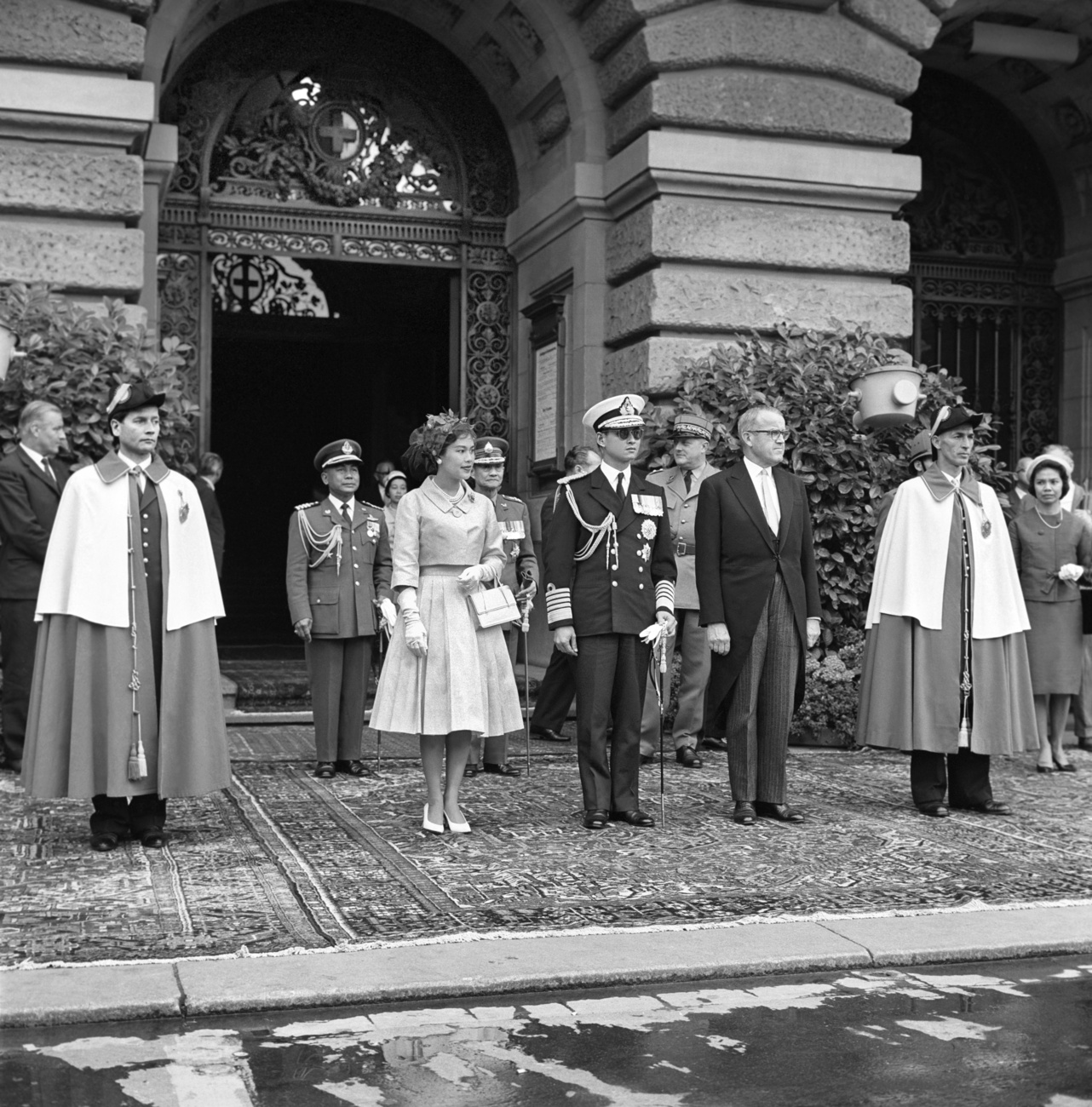

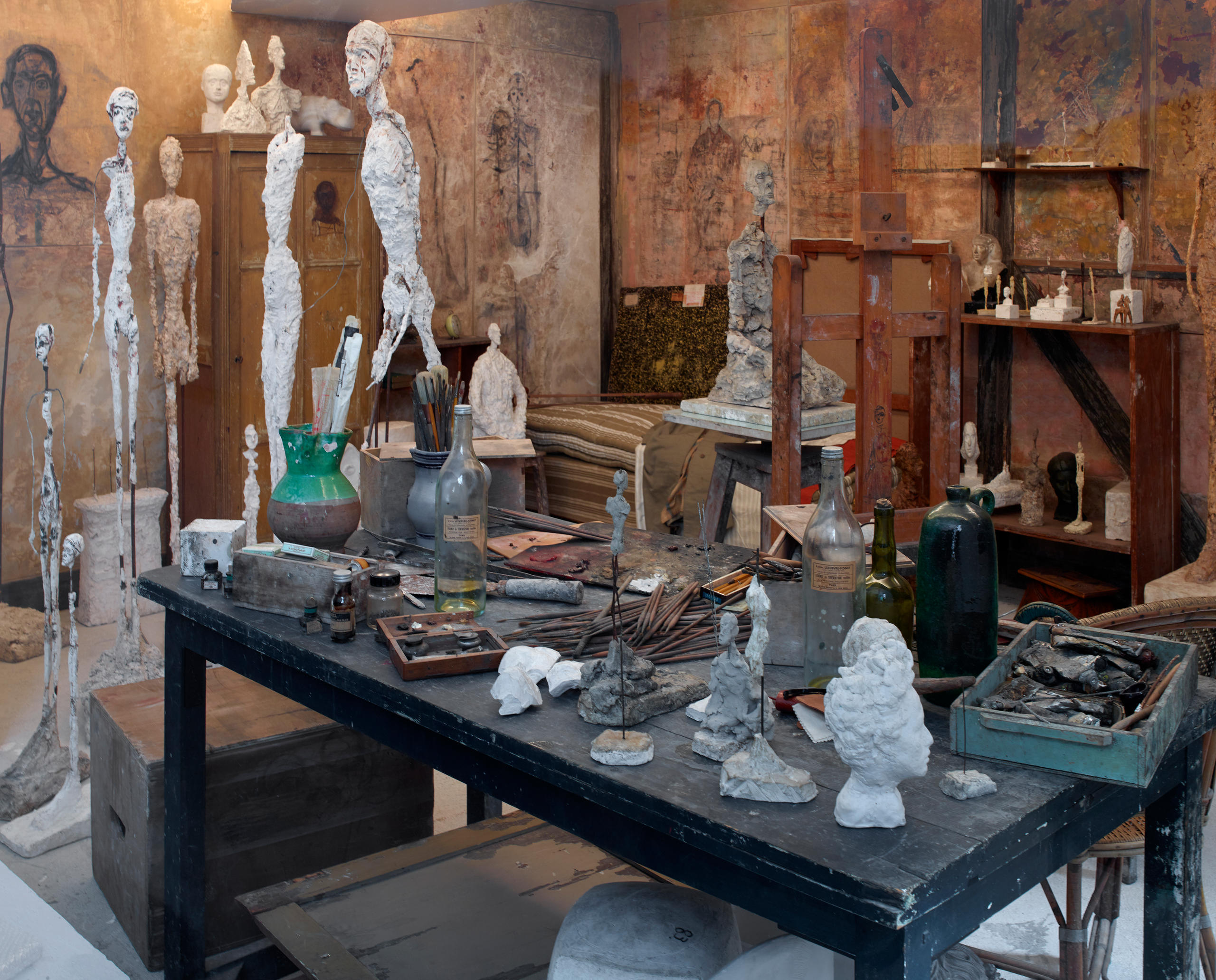









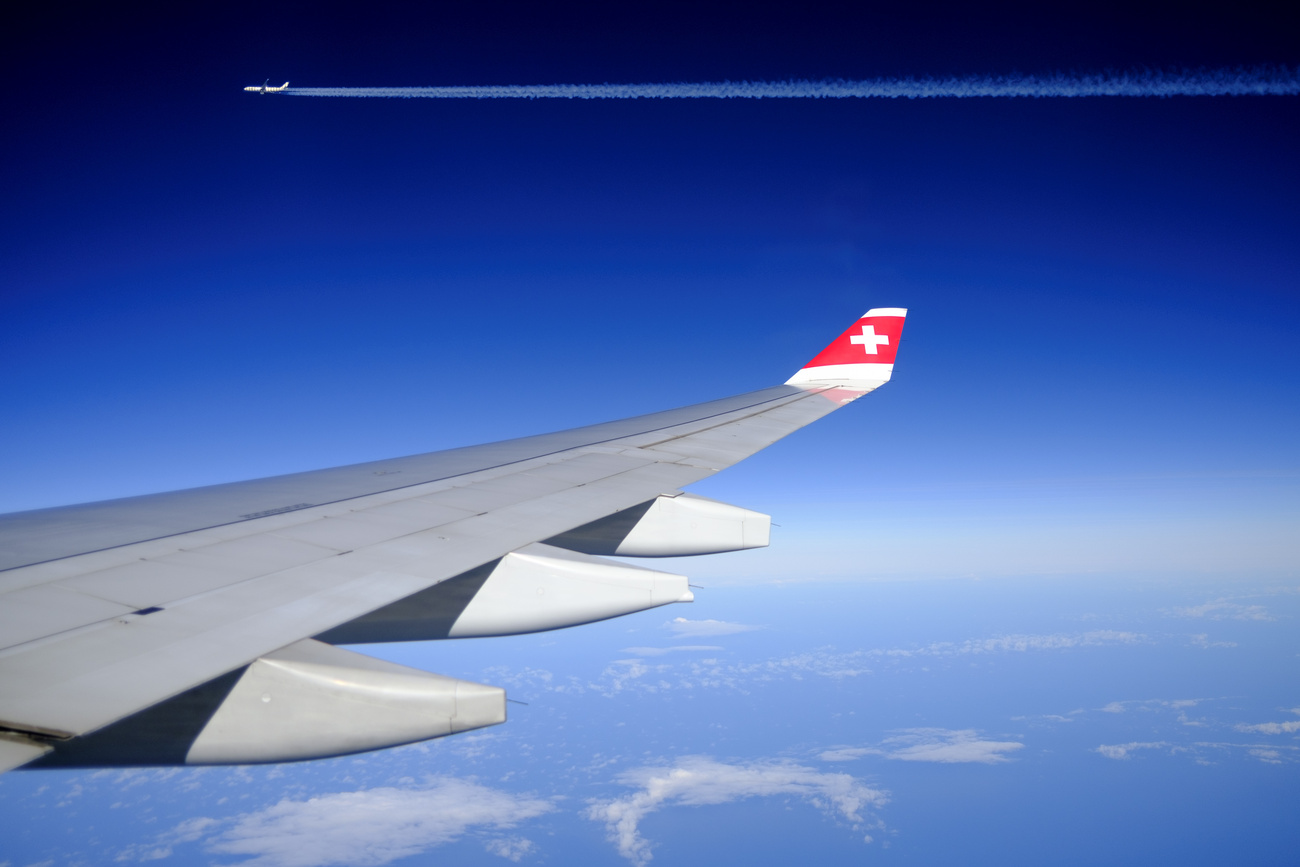


You can find an overview of ongoing debates with our journalists here . Please join us!
If you want to start a conversation about a topic raised in this article or want to report factual errors, email us at english@swissinfo.ch.